Global
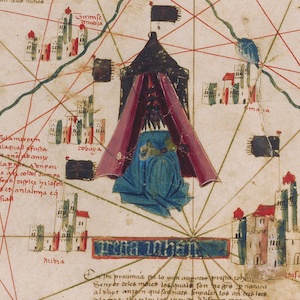
Catalan Map of the World, c.1450
Dated to the mid-fifteenth century, this Catalan world map is over a meter in diameter on a sheet of vellum (high-quality parchment made of calfskin). Unlike many other surviving charts, this was not meant for practical navigation, though it was based on such nautical charts.
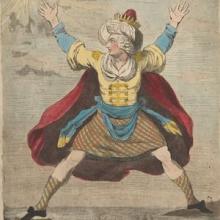
Short Teaching Module: Making Empire Global - British Imperialism in India, 1750-1800
The study of world history has often overlapped with scholarship on empire and imperialism.
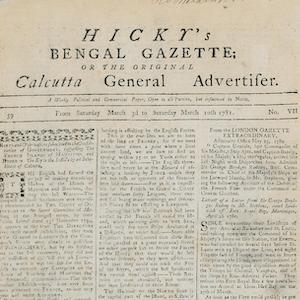
Hicky's Bengal Gazette
Hicky’s Bengal Gazette was the first printed newspaper to be published in India.
Primer: Transnational Mobility and State Formation
Modern nation-states and transnational mobility – the movement of people, things, and ideas across borders – are two important subjects for historians to study. They are two fundamental features of the modern world and have influenced one another constantly over the last several centuries.
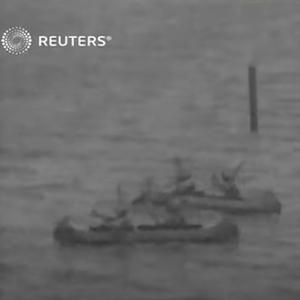
Video: Boy Scouts at 1929 World Jamboree Perform as Native Americans
This video features film footage of events at the Boy Scouts’ third World Jamboree, held in England in 1929. The jamboree was known as the “Coming of Age” Jamboree, since it marked twenty-one years since the foundation of the Boy Scouts.

Video: Indian Boy Scouts at 1929 World Jamboree
This video features film footage of events at the Boy Scouts’ third World Jamboree, held in England in 1929. The jamboree was known as the “Coming of Age” Jamboree, since it marked twenty-one years since the foundation of the Boy Scouts.

Video: March of Flags from 1929 Boy Scout World Jamboree
This video shows the opening ceremony at the Boy Scouts’ third World Jamboree, held in England in 1929. The jamboree was known as the “Coming of Age” Jamboree, since it marked twenty-one years since the foundation of the Boy Scouts.

Photograph of the Boy Scout World Jamboree in 1929
This photograph shows the South African contingent at the Boy Scouts’ third World Jamboree, held in England in 1929. The jamboree was known as the “Coming of Age” Jamboree, since it marked twenty-one years since the foundation of the Boy Scouts.
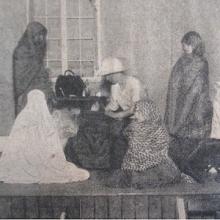
Long Teaching Module: Exploring Empire through the Lens of Childhood and Gender
As European empires expanded at the end of the end of the nineteenth century, imperialism came to permeate everyday life and had a pervasive influence on childhood, shaping everything from education to sports and literature.
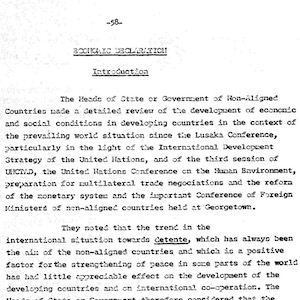
Economic Declaration of Nonaligned Countries
This document is part of the economic declaration of the Fourth Nona